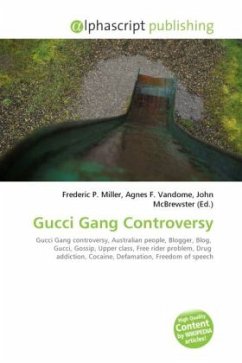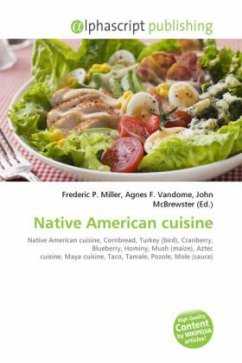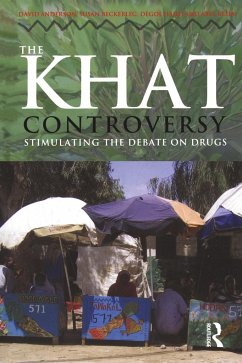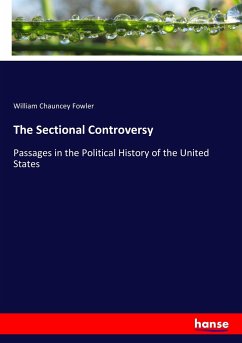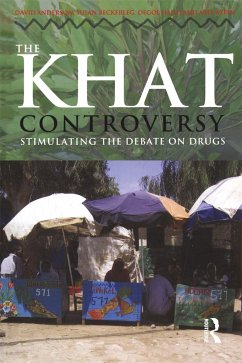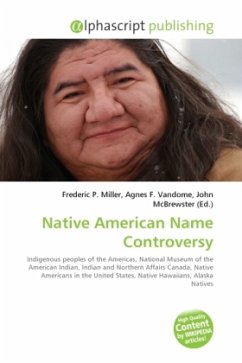
Native American Name Controversy
Versandkostenfrei!
Versandfertig in 6-10 Tagen
30,99 €
inkl. MwSt.

PAYBACK Punkte
15 °P sammeln!
The Native American name controversy is a dispute over the acceptable terminology of the indigenous peoples of the Americas and to the broad subsets thereof, such as those living in a specific country or sharing certain cultural attributes. People have used many English words or phrases for indigenous peoples, often in an attempt to be more culturally specific, or to avoid terms widely considered to be outdated, inaccurate, or racist. Some terms in use are Native Americans, Original Americans, First Peoples, First Nations, and Indigenous Peoples of America. Indian remains in use among some Nat...
The Native American name controversy is a dispute over the acceptable terminology of the indigenous peoples of the Americas and to the broad subsets thereof, such as those living in a specific country or sharing certain cultural attributes. People have used many English words or phrases for indigenous peoples, often in an attempt to be more culturally specific, or to avoid terms widely considered to be outdated, inaccurate, or racist. Some terms in use are Native Americans, Original Americans, First Peoples, First Nations, and Indigenous Peoples of America. Indian remains in use among some Native Americans, especially among the older generations as an in-group usage, but in wider usage it is often qualified, as in American Indians, Amerindians, and Amerinds. Many prefer to avoid a pan-Indian naming, and identify as their particular Nation, Tribe or Band (ie: Lakota, Seneca, Cheyenne). In an attempt to recognize indigenous peoples of the United States and their primacy of tenure in the nation, the US Government began using the term "Native American" during the latter half of the 20th century. None of the alternatives is accepted by all indigenous peoples.



